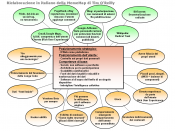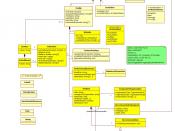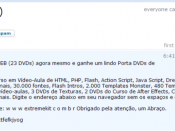Web 2.0
Abstract
The effect of user generated content on the quality of published content is a hotly discussed subject, with many supporters for both sides of the argument. It is felt that non-experts publishing material online gives ambiguity to the validity of the information supplied. Also, there is the issue of the publication of offensive material on the web. On the other hand, it is believed that the combined knowledge of essentially all users is greater than that of an expert. In addition, there are the fundamental benefits of social networking, opening up a world that would otherwise be unavailable to many users and the closing of the gap between amateur and professional web development.
Keywords
Web 2.0, User Generated Content, Social Networking.
1. Introduction
Web 2.0 is the buzzword on everybody's lips, but what is it? And what are the effects of this development on our online society.
The production of sites such as Wikipedia, Facebook and Flickr has generated an online world the user controls. Is there a need to monitor this activity?
2. What is Web 2.0?
Tim O'Reilly gives an excellent explanation of Web 2.0:
"Like many important concepts, Web 2.0 doesn't have a hard boundary, but rather, a gravitational core. You can visualise Web 2.0 as a set of principles and practices that tie together a veritable solar system of sites that demonstrate some or all of those principles, at a varying distance from that core." (O'Reilly 2005)
The term was originally conceived to convey a change in web development and usage; it also helped to change users' perception of the web. It has been speculated that the use of '2.0' gives the incorrect impression of a new version of the web as this is the format in which software versions are specified.


